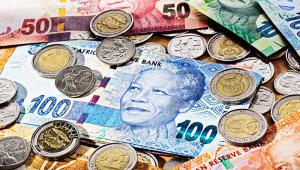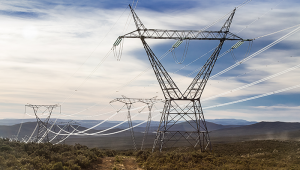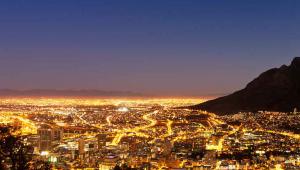Eskom, integral to South Africa’s $340bn economy, said this week power could be “severely constrained” if it was unable to replenish diesel and water reserves.
This comes as news service Bloomberg reported that South Africa may have emerged from its recession in the third quarter of this year. It went into recession in the second quarter for the first time since 2009 when its economy contracted by 0.7% quarter-on-quarter because of declines in the agricultural, transport and retail sectors.
Isaah Mhlanga, chief economist at Alexander Forbes Investment in South Africa, wrote on Twitter that Eskom’s ability to provide stable power was the “single biggest risk to president Cyril Ramaphosa” in turning around the economy.
Eskom as an institution and its ability to provide stable power supply is the single biggest risk to @CyrilRamaphosa ‘s investment drive and the SA fiscus. Fixing SA and becoming energy sufficient must be the biggest priority to set the country on a higher growth path.
— Isaah Mhlanga (@IsaahMhlanga) December 1, 2018
Ramaphosa had made reforming Eskom a priority, Reuters reported, but added he had been “hampered by fiscal constraints in a blow to his plan to woo investors who can help grow the economy ahead of an election likely to be held in May next year”.
Reuters also quoted BNP Paribas South Africa senior economist Jeff Schultz as saying:
“Come mid-January, if we are still facing load-shedding, that is when it is going to be a much more pressing issue for the economy,” Schultz said.
‘Load-shedding’ is Eskom’s way of conserving power by organising two or three hours a day of national outages, a strategy it initially started in January 2008.
Ramaphosa took over as president when scandal-hit Jacob Zuma resigned from office in February this year.
Eskom, which generates electricity for 95% of South African and 45% of that used in Africa, is battling severe financial problems, coal shortages and breakdowns of its power plants, and said it would cut up to 2,000 megawatts of power from today.
The state-owned firm racked up a $800m (11.2 billion rand) loss this financial year and is in $30bn of debt, which has mainly been blamed on accusations of corruption surrounding the company.
Eskom chairman Jabu Mabuza told a news conference last month: “Eskom is in a state of severe financial difficulty. In its current state Eskom is not sustainable.”
It has been alleged two advisory firms earned around US$120m (1.6bn rand) and an additional 7.8 billion rand from future contracts from the energy firm in the past few years. One of the companies, Trillian, was owned by the infamous Gupta family and was contracted to supply coal between 2014 and 2017.
Eskom was apparently lent on by then president Zuma to sign the contracts. Zuma is understood to have had a corrupt relationship with the Gupta family, which is one reason people demanded his resignation earlier this year.
Eskom was forced to suspend its chief financial officer Anoj Singh in July 2017 when the Development Bank of South Africa threatened to recall a 15bn rand loan if no action was taken against Eskom officials (including Singh) who were involved in corruption allegations involving to the Gupta family.
In 2017 the investment bank Goldman Sachs declared Eskom as being the “biggest risk” to South Africa’s economy.
Public Finance International reported in May that South Africa’s Treasury director general Dondo Mogajane had said the country was on the “bring of becoming a failed state” because public servants were “turning a blind eye” to the plunder of state resources.







